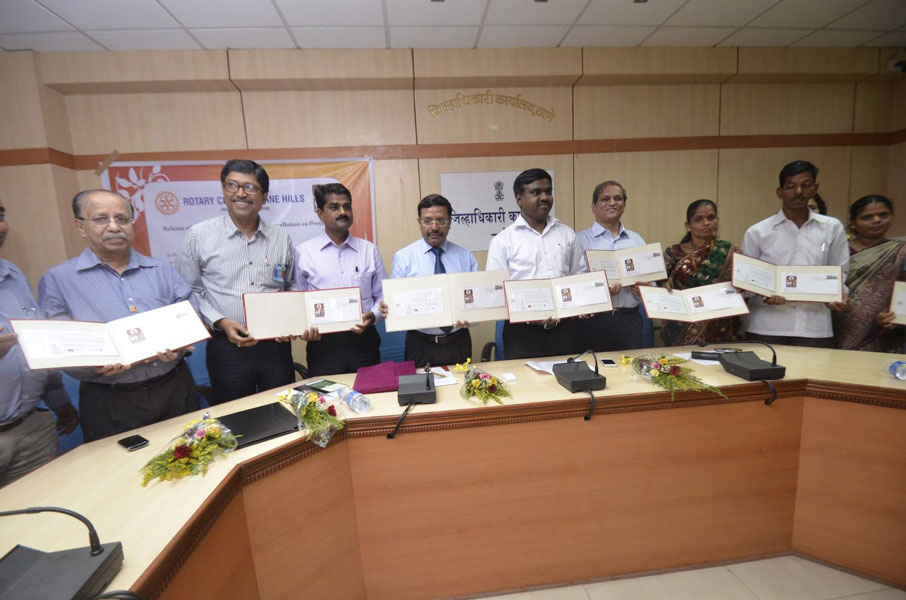Well before Prime Minister Narendra Modi launched the Swachh Bharat campaign on October 2, which is celebrated as Gandhi Jayanti in India, Rotary and Rotarians have been doing this much-required and commendable work in different parts of India.


Of course in the government scheme that Modi announced, a sum of Rs 1,34,000 crore has been set apart to build a mammoth number of 11.11 crore toilets across India.
It has been well documented that a major hindrance to the education of the girl child, especially after primary school, is the absence of separate toilets for girls in secondary school. In many parts of India, after puberty, many parents discontinue their daughters’ education for the simple reason: the teenager has no access to a girl’s toilet.
In remote and rural areas, many households do not have toilets and the women depend on open fields to relieve themselves. Their pathetic plight can be imagined as they have to wait for long hours — using the fields either before dawn or well after sundown. This makes them much more vulnerable to sexual assault.

Sogav, a small village located 80 km from Mumbai, witnessed a daily scenario of people defecating in public due to unavailability of toilets in their houses. Women and girls had to walk miles in the early hours to find a safe and discreet place to relieve themselves. They faced hygiene and safety risks every day.
Under the presidentship of Rotarian Atul Bhide, RC Thane Hills, RI District 3140, launched the project ‘Right to go’ and built 210 ‘Green Toilet Blocks’ for 210 homes at Sogav. Bhide and his team identified houses for construction of toilets based on the economic condition and number of female members in a household. Initially 10 toilets were constructed. A Global Grant partnership with RC Cherry Hill, RI District 7640, USA and TRF raised Rs 36 lakh. Dr Renuka Desai, now in the US and a member of RC Cherry Hill, supported this project.
Bhide and team started construction of the toilets in March 2014 and completed the project in three months. Today the project benefits 1,000 villagers. The average cost per toilet was Rs 18,000. Post construction, the team collected Rs 500 from each house in the village and opened a bank account with Rs 1 lakh. This amount will be used for the repair and maintenance of these toilets.
Each green toilet is equipped with two soak-pits with special honey-comb designed brick work. The pits are odour-free and do not require any separate drainage system. Each household maintains their toilet block.
A Rotary Community Corps is serving as a catalyst between the villagers and Rotary. Members of the RCC impart hygiene awareness to the villagers. Local officials conduct a hygiene and sanitation check. ‘Win the Kids Over’ programme at the local schools helps the children in Sogav learn the importance of good hygiene and maintaince of their own toilet block.
Rotarian Bhide shares an inspiring and interesting experience when one of the residents of Sogav thanked Rotary for not only taking care of the hygiene and sanitation of the village but also restoring dignity of women in the village. “Earlier we were just treating it as a project related to health and sanitation. But this resident made it clear that it meant much more to them,” adds Bhide.





